Grapefruit preservatives offer multiple benefits for your natural skincare routine. You can create exfoliating scrubs by mixing preserved juice with sugar and oil, or use Grapefruit Seed Extract (GSE) to extend soap shelf life at concentrations of 0.05-2%. Add dehydrated peels to soaps for gentle exfoliation, or blend GSE with castile soap for antibacterial hand wash. You'll also find it effective for pH-balanced cleansers and eco-friendly soap formulations. Discover how these citrus-powered preservatives can transform your homemade products.
10 Genius Ways to Use Grapefruit Preservatives
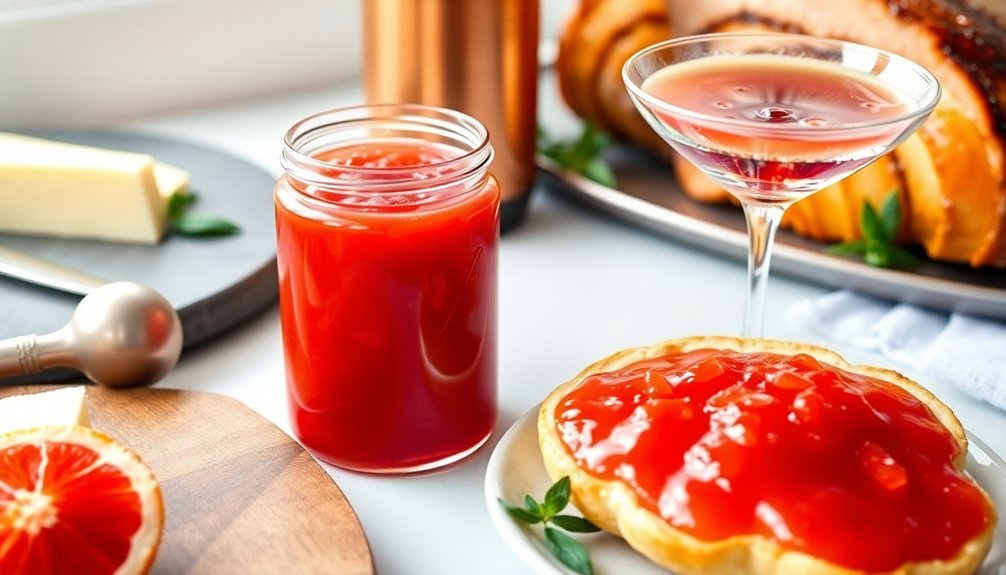
While many people simply enjoy grapefruit as a breakfast staple, its preservation methods offer remarkable versatility beyond the dining table. You'll find endless creative applications when you store these citrus treasures properly.
Transform your skin care routine by mixing preserved Grapefruit Juice with sugar and olive oil for an invigorating scrub that tightens skin naturally. The natural acids work as a gentle exfoliant while providing that revitalizing citrus aroma.
Don't discard those peels! Dehydrate and store them in airtight containers to retain their potent seed extract and essential oils. They'll add vibrant flavor to teas and baked goods for months.
For practical home solutions, freeze fresh juice in ice cube trays for smoothies, or simmer it as a natural air freshener that eliminates odors effectively.
Harnessing Grapefruit Seed Extract as a Natural Soap Preservative
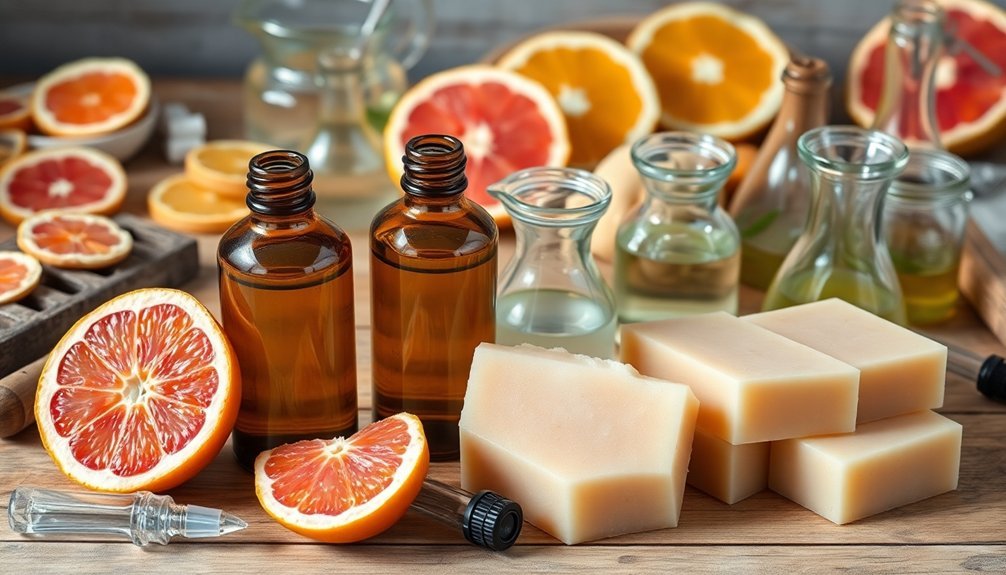
When selecting a grapefruit seed extract for your handmade soaps, you'll find significant potency variations between brands, with liquid concentrations typically offering more consistent antimicrobial protection than powder versions.
You'll achieve ideal preservation by blending your GSE with a carrier oil before adding it to your soap mixture at temperatures below 140°F to maintain its effectiveness.
For the best results, start with the minimum effective concentration of 0.05% and increase gradually if needed, while performing small batch tests to guarantee your formula doesn't develop cloudiness or separation issues.
GSE Potency Variations
Although many natural preservatives offer inconsistent results, Grapefruit Seed Extract stands out for its available potency options that suit different preservation needs. When formulating your personal care products, you'll find GSE in two primary concentrations: 33% for everyday applications and 60% for professional cosmetic formulations.
| Concentration | Ideal Uses | Recommended Dosage |
|---|---|---|
| 33% Solution | Household soaps | 0.05-1% |
| 60% Solution | Professional cosmetics | 0.5-2% |
| GSE + Glycerin | Sensitive skin products | 0.1-1.5% |
| Liquid Extract | Products used to wash | 0.2-1% |
For maximum effectiveness, measure precisely using a digital scale rather than droppers. The versatility of Grapefruit Seed extract makes it perfect for extending shelf life while maintaining your commitment to natural ingredients.
Formulation Best Practices
Successfully incorporating GSE into your soap formulations requires more than just knowing its concentrations. When adding this potent seed extract to your soap, measure precisely using an ml syringe to achieve the recommended 0.05-2% dilution rate, ensuring both safety and effectiveness.
Take care to distribute GSE evenly throughout your mixture for consistent preservation. The extract's natural quaternary ammonium compounds—derived from citrus pulp and polyphenols—provide robust antimicrobial protection without toxic additives often found in drinking water or conventional preservatives.
For best results, add GSE during the cool-down phase of your soap-making process to preserve its antimicrobial properties.
You'll enjoy extended shelf life while benefiting from GSE's crisp citrus scent and skin-friendly attributes that elevate your finished product's quality.
Creating Antibacterial Hand Wash With Grapefruit Preservatives
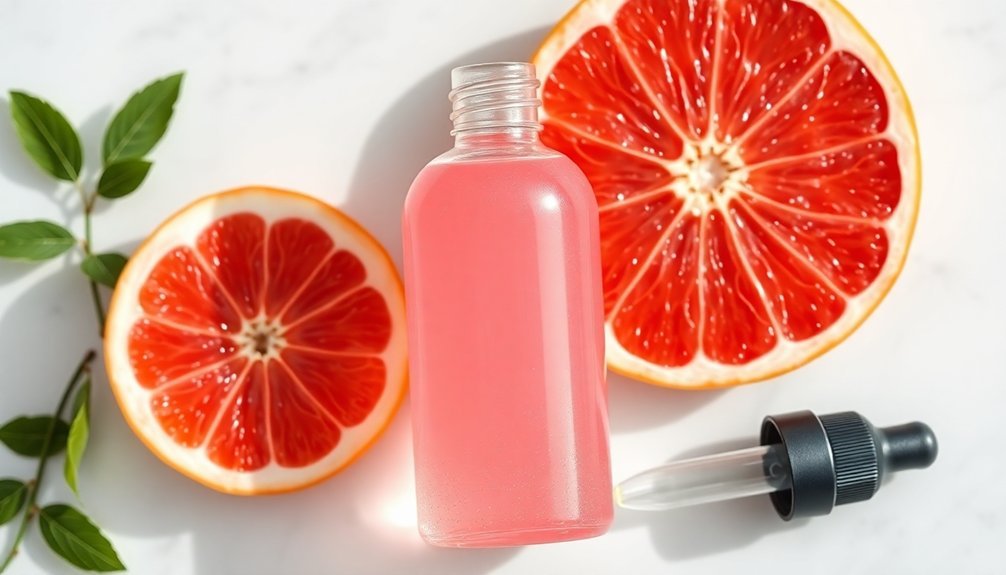
You'll find grapefruit seed extract serves as a powerful natural disinfectant in homemade hand wash, eliminating harmful bacteria while being gentler on skin than chemical alternatives.
Extracting essential oils from grapefruit peels can enhance your formulation with additional antibacterial properties and a revitalizing citrus scent.
Combine 1-2 teaspoons of GSE with liquid castile soap and water, achieving the perfect 0.05-2% dilution ratio that balances effectiveness and skin safety.
Natural Disinfectant Properties
The remarkable antibacterial power of grapefruit seed extract makes it an excellent choice for creating effective, skin-friendly hand wash formulations.
You'll need to make a proper dilution of 0.05-2% GSE to guarantee both safety and germ-fighting effectiveness without causing skin irritation.
When crafting your homemade disinfectant hand wash, simply add 10-15 drops of GSE per ounce of liquid soap base.
The natural compounds in grapefruit seed extract target harmful bacteria while being gentler than the harsh chemicals found in commercial products.
For enhanced cleansing power and a pleasant scent, combine GSE with mild surfactants and essential oils.
This natural approach not only eliminates germs effectively but also supports overall skin health—a perfect balance of cleanliness and care.
Essential Oil Extraction
Beyond grapefruit seed extract lies another potent option for natural hand wash formulations—grapefruit essential oil extraction.
You can harness this powerful antibacterial agent through steam distillation of the fruit's peel, preserving its germ-fighting compounds like naringin and limonoids.
To create your own antibacterial hand wash, combine grapefruit essential oil at a 1-2% concentration with liquid castile soap and water.
For enhanced skin benefits, add a carrier oil such as coconut or olive oil, which provides hydration while the essential oil tackles bacteria.
This DIY approach delivers more than just cleanliness—you'll enjoy the aromatherapeutic properties of grapefruit too.
The invigorating citrus scent elevates your mood during hand washing, creating a brief moment of wellbeing in your daily routine.
Homemade Soap Techniques
Creating antibacterial hand wash at home becomes remarkably simple once you've mastered a few basic soap-making techniques with grapefruit preservatives.
Start by selecting a natural castile soap base, then add grapefruit seed extract (GSE) at a concentration of 0.05-2% to maximize antibacterial properties without irritating your skin.
For enhanced benefits, incorporate fresh grapefruit juice to infuse your hand wash with antioxidants and vitamins that nourish skin while cleansing. The juice also contributes a revitalizing scent that you can amplify by adding a few drops of grapefruit essential oil.
Remember to mix thoroughly to guarantee even distribution of the GSE throughout your soap base.
This homemade solution effectively kills harmful bacteria while providing a gentle, invigorating cleansing experience your skin will appreciate.
Extending Soap Shelf Life With Citrus-Based Preservation Techniques
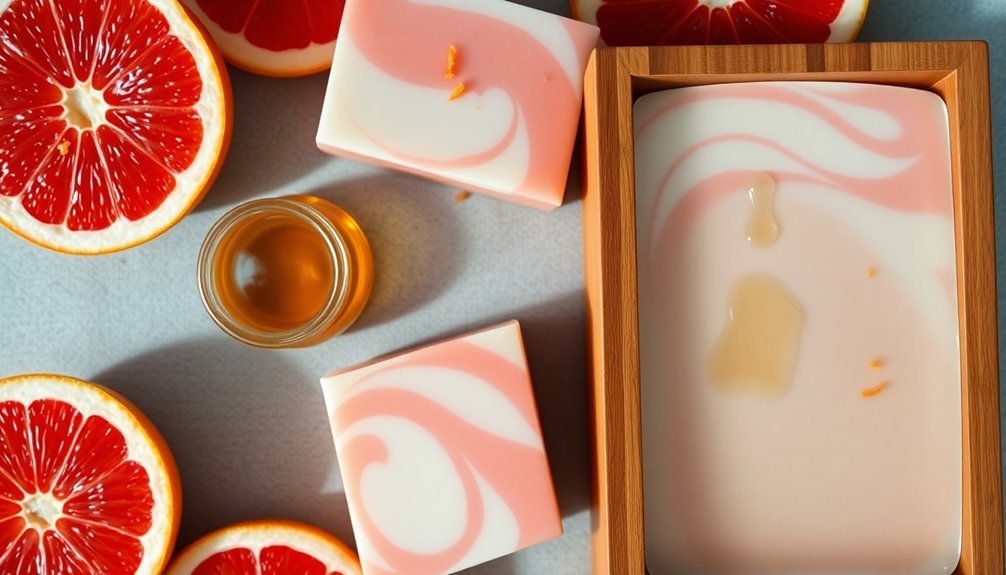
While many artisanal soap makers struggle with product longevity, grapefruit-based ingredients offer effective natural preservation solutions.
You'll find that incorporating grapefruit seed extract (GSE) greatly enhances antibacterial properties, inhibiting microbial growth that typically shortens shelf life.
Try blending GSE with vegetable glycerin to create a stable, non-irritating preservative that improves your soap's quality and durability.
The natural acidity of grapefruit juice works as a preservative by lowering pH levels that bacteria need to thrive.
For additional benefits, add grapefruit essential oils rich in antioxidants that prevent rancidity while providing invigorating scent.
Don't overlook dehydrated grapefruit peels—they not only add exfoliating texture but retain essential oils and nutrients that help preserve your soap naturally.
Crafting Ph-Balanced Cleansers Using Grapefruit Derivatives
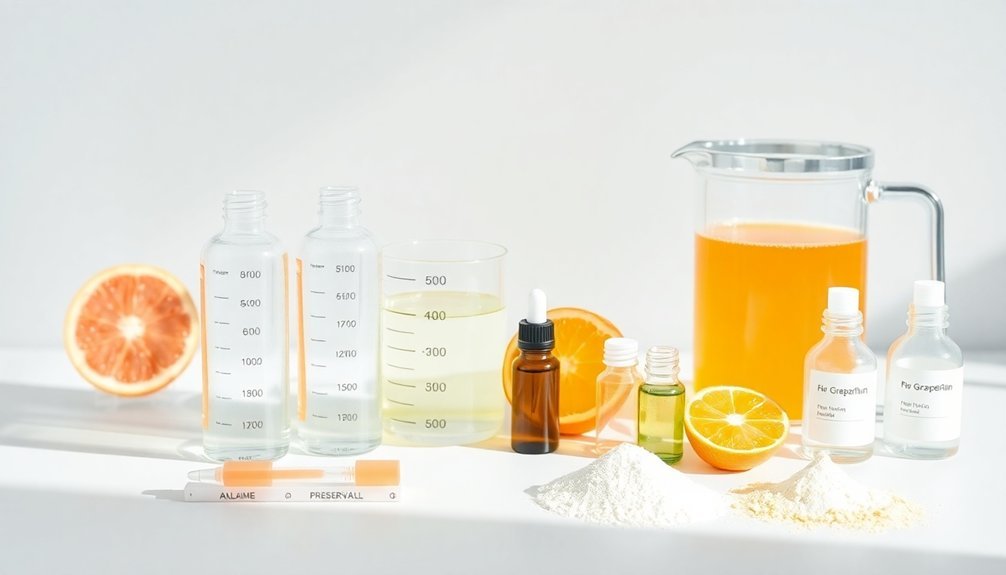
When you're formulating pH-balanced cleansers, grapefruit derivatives offer exceptional natural solutions that respect your skin's delicate acid mantle.
Grapefruit seed extract (GSE) provides powerful antibacterial properties without harsh chemicals, making it ideal for gentle yet effective cleansing formulations.
Mix 10 drops of GSE per gallon of distilled water as your base. For added benefits, incorporate fresh grapefruit juice to enhance the citrus scent while providing natural astringent qualities that tighten and tone skin.
Blend this mixture with olive or coconut oil to create a moisturizing cleanser that removes impurities while maintaining skin hydration.
Always test your final product with pH strips to verify it falls within the skin-friendly range of 4.5 to 5.5. This simple check guarantees your homemade cleanser will cleanse effectively without disrupting your skin's natural balance.
Incorporating Grapefruit Preservatives in Hot Process Soap Making
When making hot process soap, you'll find grapefruit seed extract (GSE) offers exceptional antibacterial properties that naturally preserve your creations at just 0.05-2% of your total batch volume.
You can enhance these benefits by diluting GSE with vegetable glycerin before incorporation, preventing skin irritation while maintaining its effectiveness as a natural preservative.
For additional antimicrobial protection and a revitalizing scent profile, try adding dried grapefruit peels directly to your soap mixture alongside grapefruit essential oil.
GSE Benefits Explained
The powerful antibacterial properties of Grapefruit Seed Extract (GSE) make it an invaluable addition to hot process soap making. When you incorporate GSE into your soap formulations, you're enhancing the cleansing capabilities while effectively killing bacteria on the skin.
You'll notice GSE contributes a revitalizing citrus scent to your soap, making your product more appealing to users. Remember to dilute it properly to prevent skin irritation and guarantee a pleasant experience.
Derived from citrus seeds and pulp, GSE offers broad-spectrum antibacterial activity without toxicity, serving as an excellent natural preservative.
Perhaps most importantly, adding GSE considerably improves your soap's shelf life, allowing your creations to maintain quality and effectiveness longer. This natural preservative gives your handcrafted soaps a professional edge without harsh chemicals.
Incorporating Dried Peels
While GSE offers remarkable preservation benefits, another natural approach involves working with the fruit itself.
You'll find that dried grapefruit peels can transform your hot process soap into an invigorating skin treatment when finely ground and added at the trace stage.
These dehydrated peels provide gentle exfoliation while releasing revitalizing citrus aromas from their retained essential oils. The peels' natural antibacterial properties contribute to skin health, making them more than just a textural element.
To achieve the best results, verify your peels are completely dehydrated before incorporation. This prevents unwanted moisture from affecting your soap's texture and extends the longevity of these natural additives.
The careful timing of adding the peels helps maintain their vibrant color throughout your finished product.
Blending Essential Oils With Grapefruit Seed Extract for Enhanced Benefits
Creating powerful natural preservatives becomes remarkably effective once you combine grapefruit seed extract with complementary essential oils. GSE's natural antibacterial properties serve as an excellent carrier for essential oils, amplifying their effectiveness in both skincare formulations and household cleaners.
- Mix GSE with tea tree or lavender oil for a potent antimicrobial solution perfect for natural cleaning products and acne-fighting skincare.
- Blend with citrus oils for invigorating scents while extending shelf life in homemade cosmetics and room sprays.
- Combine with antioxidant-rich oils like rosemary or clove to create synergistic preservatives that protect against oxidative stress.
You'll find this approach not only extends product longevity but also prevents skin irritation by properly diluting potentially harsh essential oils.
Formulating Mold-Resistant Soap Bases With Grapefruit Compounds
Natural soap makers frequently struggle with preserving their creations against mold, which is why grapefruit seed extract (GSE) has become revolutionary in the formulation process.
By incorporating GSE into your soap base at a concentration of 0.05% to 2%, you'll create a product that naturally fights bacterial growth without harsh chemicals.
You'll notice GSE not only extends your soap's shelf life but also adds a delightful citrus aroma that enhances the user experience.
This powerful extract retains beneficial nutrients from grapefruit while providing broad-spectrum protection against common contaminants.
When you formulate with GSE, you're creating eco-friendly, preservative-free options that remain gentle on skin while tough on mold.
This balance makes it perfect for crafting stable, long-lasting soaps that meet the growing demand for natural skincare solutions.
Maximizing Antioxidant Properties in Cold Process Soap Recipes
Cold process soap making offers a perfect canvas for harnessing grapefruit's remarkable antioxidant properties. By incorporating grapefruit derivatives strategically, you'll create a skin-nurturing product that fights environmental damage while cleansing effectively.
- Blend vitamin C-rich juice into your recipe by carefully adjusting the lye amount to accommodate grapefruit's acidity. This maintains proper saponification while preserving the fruit's protective flavonoids.
- Add grapefruit seed extract (GSE) during trace to enhance antibacterial properties without compromising the soap's cleansing benefits.
- Incorporate dried peels or dehydrated slices as natural exfoliants that boost antioxidant content while adding visual appeal and texture to your finished bars.
You'll notice improved complexion and oil control benefits from these additions, making your homemade soap both functional and luxurious.
Developing Eco-Friendly Cleansing Bars With Sustainable Grapefruit Preservatives
While commercial soaps often rely on synthetic preservatives, you'll find that grapefruit derivatives offer powerful natural alternatives for eco-friendly cleansing bars.
Grapefruit seed extract (GSE) delivers potent antibacterial properties that maintain skin hygiene without harsh chemicals.
You can enhance your bars' texture by incorporating dehydrated grapefruit peels, which provide gentle exfoliation while preserving essential oils. Adding fresh grapefruit juice creates an invigorating scent and boosts moisturizing benefits that environmentally conscious consumers appreciate.
GSE's broad antimicrobial activity serves as an effective non-toxic preservative, extending shelf life while ensuring product safety.
Frequently Asked Questions
What to Do With Loads of Grapefruit?
You've got plenty of grapefruit? Dehydrate the peels for tea, freeze the juice for smoothies, make yogurt bark with chunks, add them to salads, or simmer the juice as a natural home freshener.
How Do You Use Grapefruit Seed Extract as a Preservative?
To use grapefruit seed extract as a preservative, you'll dilute it at 0.05-2% concentration in your product. Add 10 drops per gallon for washing produce, or up to 2% in cosmetics for extended shelf life.
What Does Eating Grapefruit Before Bed Do?
Eating grapefruit before bed can help with weight loss, reduce night cravings, and aid digestion. You'll benefit from its low calories, fiber, and blood sugar-regulating compounds while getting immune support from its vitamins.
Why Would a Doctor Tell You Not to Eat Grapefruit?
Your doctor may warn against grapefruit because it interferes with how your body processes certain medications. It can block enzymes in your liver, causing drug levels to rise dangerously in your bloodstream.
In Summary
You've now discovered 10 ingenious ways to incorporate grapefruit preservatives into your soap making. By utilizing these natural citrus derivatives, you'll extend your products' shelf life while enhancing their antibacterial properties. Don't hesitate to experiment with these techniques in your next batch. Whether you're crafting hand wash or cold process bars, grapefruit preservatives offer an eco-friendly solution that doesn't compromise on effectiveness or sensory appeal.
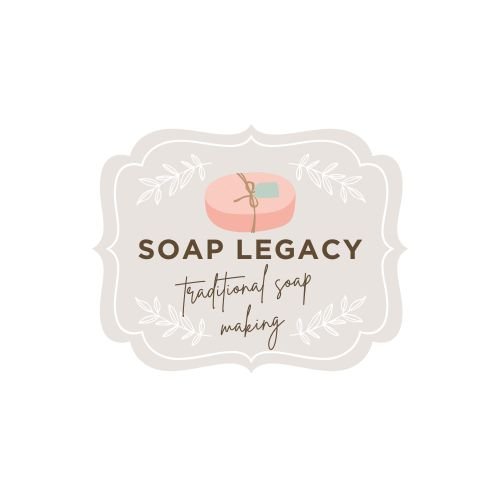
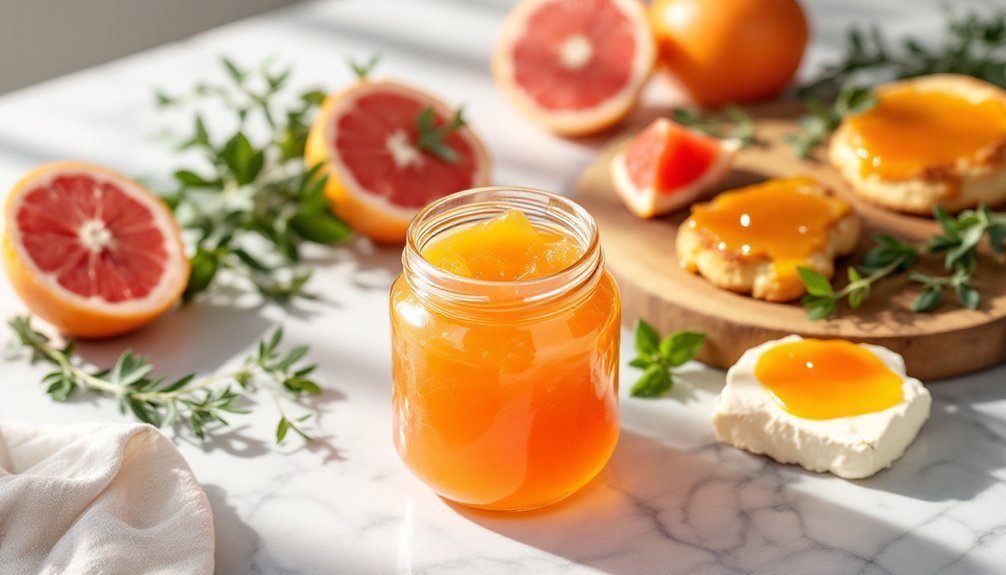
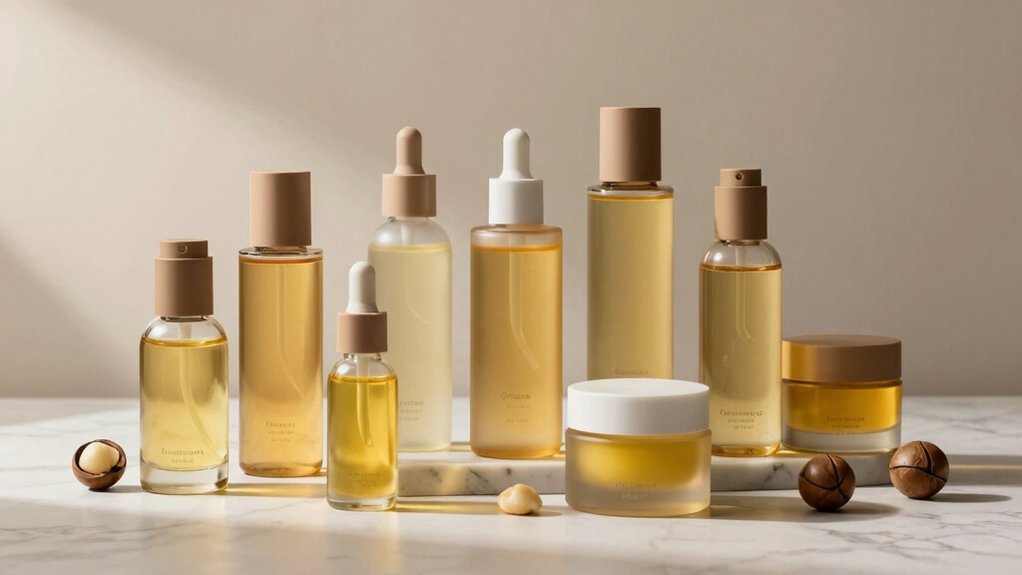
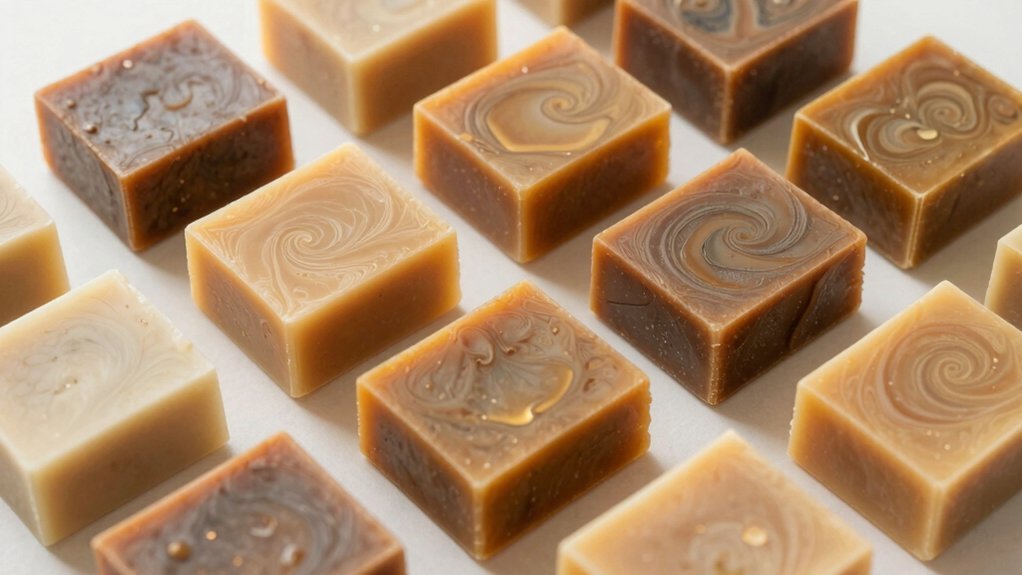
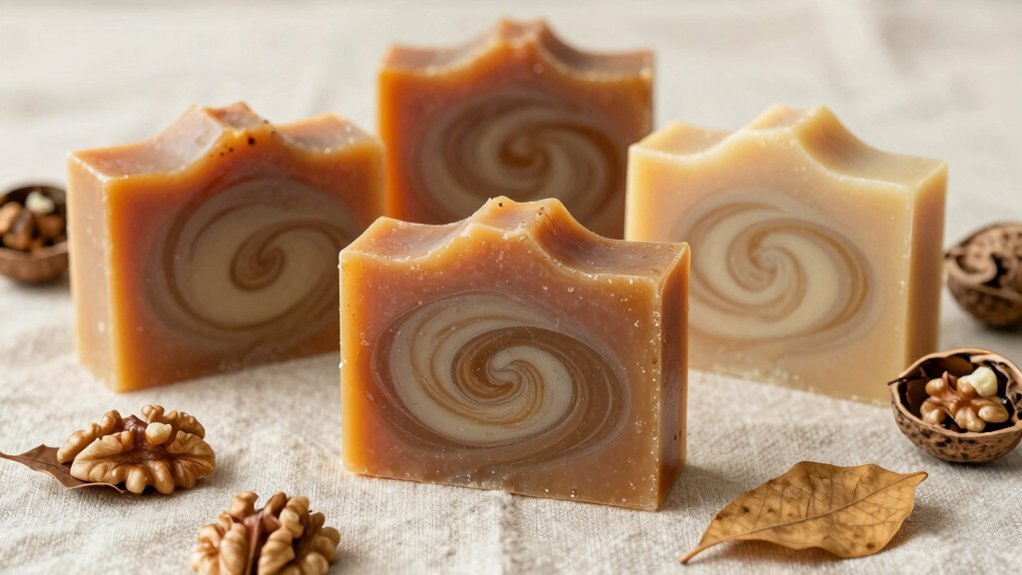
Leave a Reply